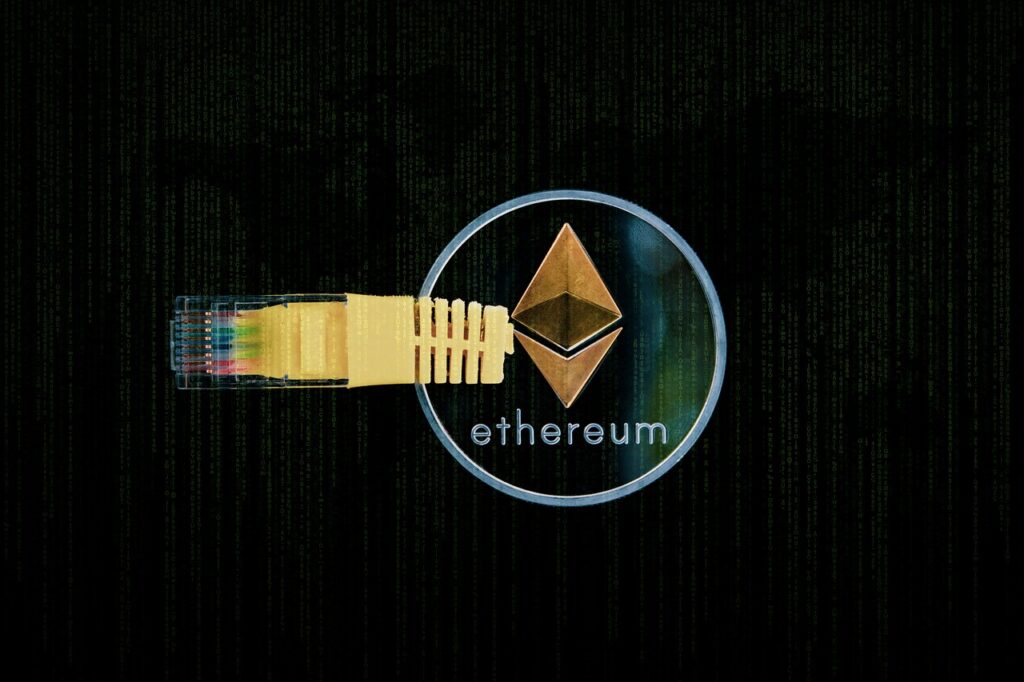The Essence of Decentralized Finance Companies
The Essence of Decentralized Finance Companies

What is Decentralized Finance?
Decentralized Finance, commonly known as DeFi, is a groundbreaking concept that is revolutionizing the traditional financial systems we are accustomed to. It is an innovative approach that leverages blockchain technology to create an open, transparent, and accessible financial ecosystem. Unlike centralized finance, where intermediaries such as banks and financial institutions hold control over transactions and funds, DeFi aims to eliminate the need for intermediaries and provide individuals with direct ownership and control over their assets.
In DeFi, financial products and services are built on decentralized platforms, powered by smart contracts. These smart contracts act as self-executing agreements that automatically execute predefined rules and conditions. Through DeFi, individuals can engage in various financial activities, such as lending, borrowing, trading, earning interest, and even creating their own financial products. With the elimination of intermediaries, users can experience reduced fees, increased privacy, and a more inclusive financial system that transcends geographic boundaries. The potential impact of DeFi is immense, as it has the power to democratize finance and empower individuals to have greater control over their financial future.
How Decentralized Finance Companies Operate
Decentralized Finance (DeFi) companies operate on the principles of transparency, immutability, and peer-to-peer interaction. Instead of relying on traditional financial intermediaries such as banks or lending institutions, DeFi companies leverage blockchain technology to provide seamless financial services to users worldwide. These platforms enable individuals to engage in various financial activities, including borrowing, lending, trading, and asset management.
The operations of DeFi companies are powered by smart contracts, which are self-executing contracts with predefined conditions written on a blockchain.

The Benefits of Decentralized Finance Companies
Decentralized finance companies offer a plethora of benefits that make them a game-changer in the financial industry. One of the most significant advantages is the increased accessibility they provide. Traditional financial institutions often require individuals to meet certain criteria or go through cumbersome processes to access their services. However, decentralized finance companies break down these barriers by allowing anyone with an internet connection to participate. This inclusivity opens up a world of opportunities for individuals who were previously excluded from the traditional financial system.
Another benefit of decentralized finance companies is the elimination of intermediaries. In traditional finance, intermediaries such as banks, brokers, and payment processors play a crucial role in facilitating transactions. However, these intermediaries often come with fees and delays. With decentralized finance companies, transactions occur directly between parties, cutting out the need for middlemen. This not only reduces costs but also increases the speed at which transactions are settled, leading to enhanced efficiency in financial operations.
• Increased accessibility for individuals with an internet connection
• Inclusivity for those previously excluded from traditional financial system
• Elimination of intermediaries such as banks, brokers, and payment processors
• Reduction in fees associated with intermediaries
• Faster transaction settlements leading to enhanced efficiency in financial operations
The Role of Blockchain Technology in Decentralized Finance Companies
Blockchain technology plays a vital role in the operations of decentralized finance companies. It acts as the underlying infrastructure that enables secure and transparent transactions without the need for intermediaries. By utilizing a decentralized ledger, blockchain technology ensures that all financial transactions are recorded and validated in a tamper-proof manner. This eliminates the need for trust in a centralized institution and provides individuals with full control over their financial activities.
One of the key advantages of blockchain technology in decentralized finance companies is its ability to facilitate smart contracts.

Key Features of Decentralized Finance Companies
Decentralized Finance Companies, also known as DeFi companies, have several key features that make them unique in the financial landscape. One of the key features is the absence of intermediaries. Unlike traditional financial institutions that rely on banks or other centralized entities to facilitate transactions, DeFi companies operate on blockchain networks, allowing for peer-to-peer transactions without the need for third-party involvement. This not only reduces costs but also increases the speed and efficiency of financial transactions.
Another key feature of DeFi companies is their open and transparent nature. The use of blockchain technology ensures that all transactions are recorded on a public ledger, accessible to anyone. This transparency fosters trust and allows participants to verify the integrity of transactions. Additionally, the decentralized nature of DeFi companies makes them resistant to censorship and control, as there is no single authority or entity that can manipulate or tamper with the system. This provides users with greater autonomy and control over their financial activities.
The Challenges Faced by Decentralized Finance Companies
Decentralized finance companies are not without their fair share of challenges. One of the key obstacles they face is the lack of regulatory clarity. The world of decentralized finance is still relatively new, and traditional regulatory frameworks often struggle to keep up with the rapidly evolving landscape. This can create uncertainty for both the companies and the users, potentially hindering widespread adoption and mainstream acceptance.
Furthermore, scalability is another challenge that decentralized finance companies must grapple with. As the popularity of decentralized applications grows, so does the demand for their services. However, many blockchain networks that underpin these companies are still struggling to handle high transaction volumes. This can lead to network congestion, longer processing times, and increased fees, which may deter users from fully embracing decentralized finance. Overcoming these scalability hurdles will be crucial for the long-term success of decentralized finance companies.
The Future of Decentralized Finance Companies
The future of decentralized finance companies looks promising as they continue to gain traction in the financial industry. With the advent of blockchain technology and the growing interest in cryptocurrencies, these companies are expected to play a larger role in the coming years. By offering a more inclusive and accessible financial system, decentralized finance companies have the potential to disrupt traditional banking systems and empower individuals to have more control over their finances.
One key aspect of the future of decentralized finance companies is their ability to provide financial services to the unbanked population. With millions of people worldwide lacking access to banking services, these companies can bridge the gap by offering decentralized and borderless financial solutions. Moreover, the use of blockchain technology ensures transparency, security, and accountability, which are crucial elements for building trust in the financial system. As more individuals embrace cryptocurrencies and decentralized finance, we can expect these companies to expand their offerings and create innovative solutions for a wider range of financial needs.
How Decentralized Finance Companies Are Empowering Individuals
Decentralized finance companies have been revolutionizing the way individuals manage and invest their money. These innovative platforms provide people with greater control and autonomy over their financial decisions, empowering them to make choices that align with their specific goals and values.
One of the key ways decentralized finance companies empower individuals is through the elimination of intermediaries. Traditional financial institutions often act as gatekeepers, charging high fees and imposing strict regulations. However, with decentralized finance, individuals can transact directly with one another using smart contracts powered by blockchain technology. This peer-to-peer approach not only reduces costs but also removes unnecessary barriers, giving individuals the freedom to access financial services without relying on middlemen. Moreover, decentralized finance platforms offer a wide range of services, including lending, borrowing, and asset management, enabling individuals to create personalized financial strategies that suit their unique circumstances. By embracing decentralized finance, individuals can take ownership of their financial future and shape their own economic destiny.
Examples of Successful Decentralized Finance Companies
There are several successful decentralized finance (DeFi) companies that have made their mark in the industry. A prime example is Compound, a platform that allows users to lend and borrow cryptocurrencies without the need for intermediaries. By utilizing smart contracts and blockchain technology, Compound has created a transparent and efficient way for individuals to earn interest on their digital assets or borrow funds without the traditional hurdles of banks or credit checks.
Another notable DeFi company is Uniswap, a decentralized exchange that facilitates trading between different cryptocurrencies. Unlike centralized exchanges that require users to create accounts and provide personal information, Uniswap operates seamlessly on the blockchain, allowing individuals to swap tokens directly from their wallets. This eliminates the need for a trusted intermediary and provides users with greater control over their funds.

Tips for Getting Started with Decentralized Finance Companies
Getting started with decentralized finance companies can seem intimidating, but with the right knowledge and approach, anyone can dive into this exciting world. Here are some tips to help you navigate the waters and begin your journey into decentralized finance.
First and foremost, it’s crucial to do your research. Familiarize yourself with the basics of decentralized finance and how it works. Understand the different platforms and projects that exist in this space. This will give you a solid foundation and help you make informed decisions when it comes to investing or participating in decentralized finance activities.
Next, consider starting small. Like any new venture, it’s wise to dip your toes in the water before jumping in headfirst. Start with a small investment or experiment with a decentralized finance platform that allows you to test the waters without risking significant amounts of money. This will help you gain hands-on experience and learn from any mistakes along the way. Remember, decentralized finance is still a relatively nascent industry, so it’s essential to take a cautious and measured approach.
By following these tips, you can start your decentralized finance journey with confidence and pave the way for potential financial empowerment. Stay tuned for more insights and guidance on how decentralized finance companies are revolutionizing the world of finance.
What is decentralized finance?
Decentralized finance, or DeFi, refers to the use of blockchain technology and smart contracts to provide financial services in a decentralized manner, without the need for traditional intermediaries like banks.
How do decentralized finance companies operate?
Decentralized finance companies operate on blockchain platforms, allowing users to interact directly with the financial applications and services they offer. These companies typically use smart contracts to automate transactions and eliminate the need for intermediaries.
What are the benefits of decentralized finance companies?
Decentralized finance companies offer several benefits, including lower fees, increased accessibility, improved privacy and security, and the ability to access financial services without needing a traditional bank account.
What is the role of blockchain technology in decentralized finance companies?
Blockchain technology provides the foundation for decentralized finance companies by enabling secure and transparent transactions, eliminating the need for intermediaries, and ensuring the integrity of the financial system.
What are the key features of decentralized finance companies?
Key features of decentralized finance companies include open access to financial services, permissionless innovation, interoperability, transparency, and the ability to create and manage digital assets.
What challenges do decentralized finance companies face?
Decentralized finance companies face challenges such as scalability issues, regulatory uncertainty, security vulnerabilities, and user adoption. However, these challenges are being actively addressed by the industry.
What does the future look like for decentralized finance companies?
The future of decentralized finance companies looks promising, with the potential to revolutionize the financial industry. As more individuals and institutions embrace blockchain technology, decentralized finance is expected to grow and offer even more innovative solutions.
How are decentralized finance companies empowering individuals?
Decentralized finance companies are empowering individuals by providing them with greater control over their financial assets, enabling access to financial services for the unbanked, and promoting financial inclusivity and economic empowerment.
Can you provide some examples of successful decentralized finance companies?
Sure! Some examples of successful decentralized finance companies include MakerDAO, Compound, Uniswap, Aave, and Synthetix. These companies have gained traction by offering innovative financial services on blockchain platforms.
Any tips for getting started with decentralized finance companies?
Absolutely! To get started with decentralized finance companies, it’s essential to do thorough research, understand the risks involved, start with small investments, familiarize yourself with popular decentralized finance protocols, and consider using a hardware wallet for enhanced security.
Todays Featured Product:
Buy, exchange and grow your crypto securely with a Ledger hardware wallet, combined with the Ledger Live app. It’s never been easier to keep your crypto safe and accessible. Buy direct from Ledger.com and get todays Special Offers Here.




